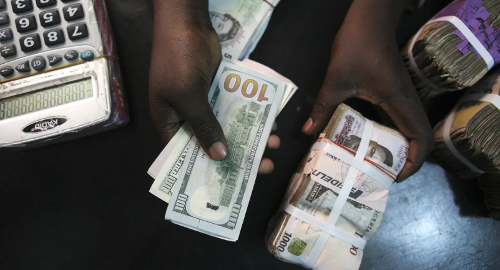Nigeria’s FX reserves are down to 6-year low amid plunging currency

As of the end of December, Nigeria's foreign exchange reserves hit a six-year low, standing at $32.87 billion. This decline was primarily driven by the central bank's active selling of dollars to support the struggling local currency.
In response to the naira's depreciation, the Central Bank of Nigeria (CBN) took measures to defend the currency, depleting its foreign exchange reserves. These reserves reached a peak of $47.63 billion in June 2018 and were significantly reduced by December, reaching a level last seen in September 2017 at $32.16 billion.
A combination of factors, including a backlog of unsettled forwards, unfulfilled commitments for dollar inflows, and a two-decade high in inflation, contributed to a challenging year for the naira. The local unit lost over 50% of its value in 2023, ranking as one worst-performing global currencies during that period.
Key Takeaways
Last week, the naira experienced a significant decline, reaching a low of N1,248 on the official market and closing at N845 on Friday. The parallel market quoted it at N1,210, while in the forwards market, the naira was traded at 1,037.50 to the dollar for one-month settlements. The downward trend of the naira is anticipated to persist throughout much of 2024. The ultimate trajectory of the currency will hinge on whether the Central Bank of Nigeria's (CBN) rhetoric transforms into tangible policy measures that enhance the influx of U.S. dollars into Nigeria and bolster confidence in the official market. The evolving situation in terms of policy decisions will play a crucial role in shaping the naira's future performance.

Next Frontier
Stay up to date on major news and events in African markets. Delivered weekly.
Pulse54
UDeep-dives into what’s old and new in Africa’s investment landscape. Delivered twice monthly.
Events
Sign up to stay informed about our regular webinars, product launches, and exhibitions.




